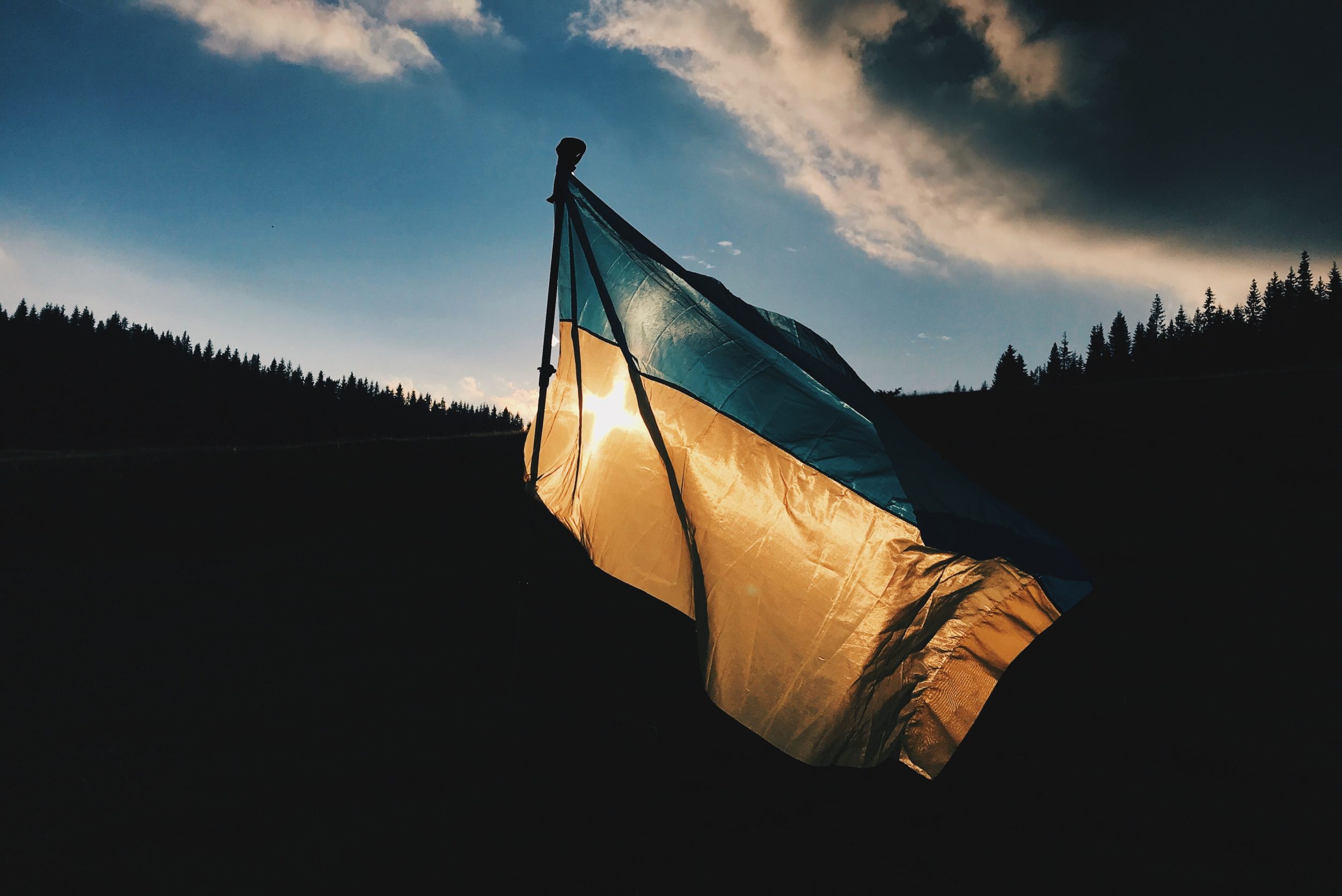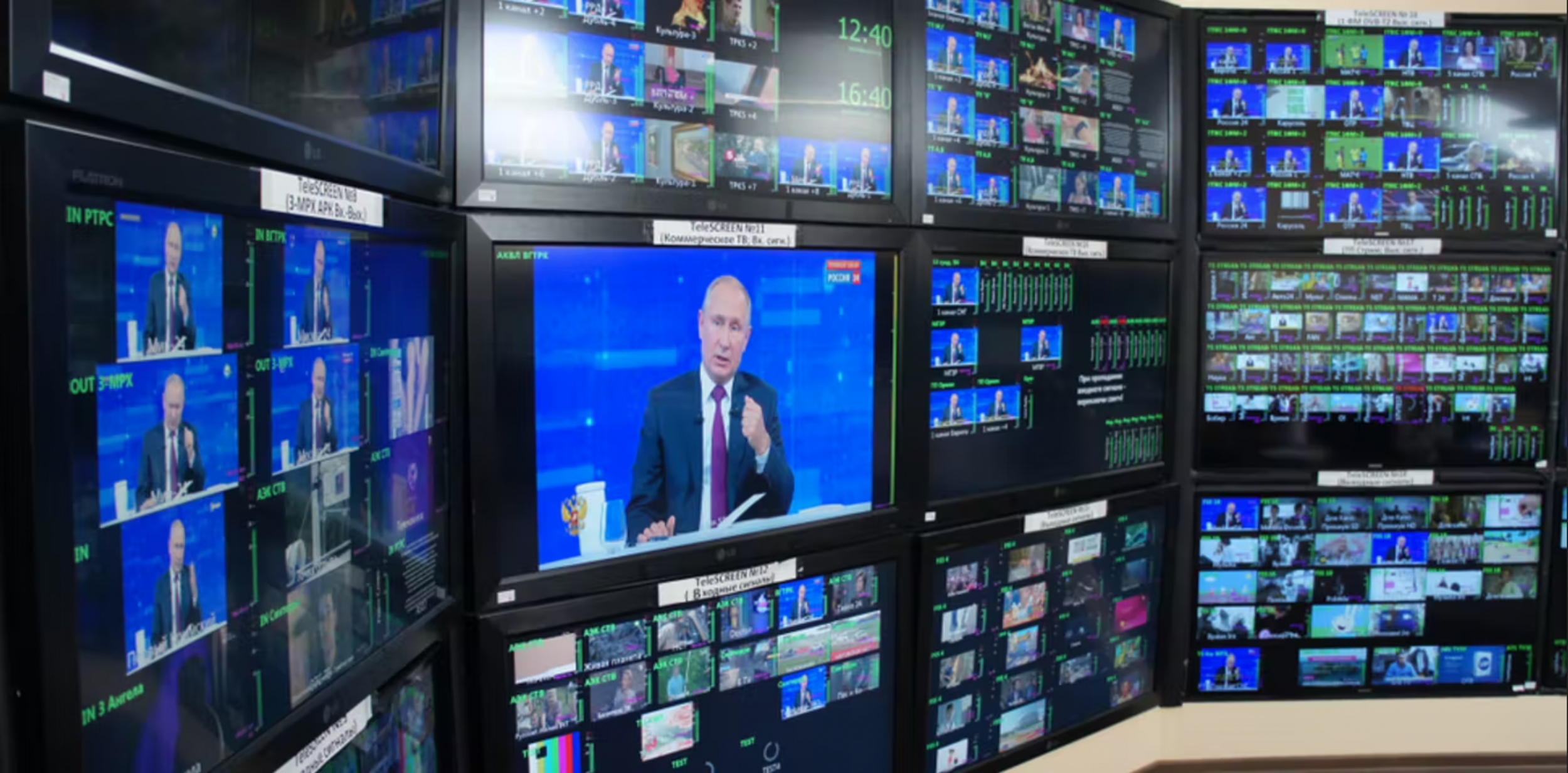 LSE’s Professor Bart Cammaerts discusses the contrast between the Ukrainian and Russian approaches to the information war that has emerged alongside the physical acts of war taking place.
LSE’s Professor Bart Cammaerts discusses the contrast between the Ukrainian and Russian approaches to the information war that has emerged alongside the physical acts of war taking place.
The idea that “in war, truth is the first casualty” is regularly evoked during conflict, with noted attributions from Greek dramatists to Samuel Johnson [1]. A war is never only fought on the physical battleground, but also on the battleground of public opinion, both internal and international. This gives rise to information wars being waged, both by the aggressor and the victim, to justify and legitimate their respective struggles and to frame what is happening on the ground in line with their own interests. At the same time, as Susan Carruthers argues in her book The Media at War, mechanisms and methods of control, persuasion and manipulation which might seem subtler and under the radar in times of peace, become more blatant, more visible, and more exposed in times of war and acute crisis.
While the Russian leaders are feeding their population a narrative of heroic anti-fascist liberation of Ukraine, of a smooth and morally justified military operation with limited Russian casualties, and that everything which points to the contrary are basically evil Western manipulations; we in the West on the contrary are fed a narrative of an inefficient but inhumane Russian military apparatus, resilient and brave Ukrainians, and an irrational, demented Russian president who is losing public support in his country because depriving Russian citizens of access to popular Western brands is working.
The current masters and winners of the information war at an international level are, however, without a doubt the Ukrainians; and this relates to their media-savvy president producing powerful narratives, but in equal measure also the Ukrainian people, who are fact-checking information, documenting atrocities and generating a plethora of relatable and deeply touching stories of the gruesomeness and horror inherent to war. The Ukrainians have fully understood the hybrid media ecology we live in today, exploiting the affordances of social media for self-representation, emotional connection and virality, and the propensity of mainstream media to amplify these further. In many ways, they have perfected what the Zapatistas in Mexico pioneered, deploying what Harry Cleaver called “the electronic fabric of struggle” in order to draw in a global gaze, harnessing high levels of international solidarity and thereby expanding the scope of a regional conflict into a global one. One way in which this is apparent is the 300,000 strong international “IT Army of Ukraine”, who were recruited through Telegram.
The Russian info-war uses the old and tested method of Maskirovka; violent repression, censorship, coercion, obfuscation and cynical distortions, presenting an alternate-reality befitting the Russian worldview and interests, mostly geared towards shoring up internal legitimacy. Russia also made it almost impossible for correspondents of Western media organisations to function, and as a result many have left Moscow. Social media has also been heavily restricted in Russia with Facebook banned and Twitter reporting that its users in Russia are experiencing difficulty using the platform. Last week, the Russian communications regulator, Roskomnadzor, also banned Instagram. Furthermore, Russia also introduced a new so-called ‘Fake News’ Law. The head of the Duma’s Security and Anti-Corruption Committee, Vasily Piskarev, stated that the new law targets those who “distort the purpose, role and tasks of the Russian Armed Forces, as well as other units during special military and other operations,” and it carries a sentence of 15 years.
Rhizomatic versus Arborescent Info-Wars
We could refer here to philosophers Gilles Deleuze and Félix Guattari’s distinction between the Rhizomatic and the Arborescent, which they explain in their book A Thousand Plateaus. Russia’s information war is arborescent, characterised by a very top-down centralised mode of control and the suppression and intimidation of all dissent; for example, its president Vladimir Putin’s recent chilling speech dividing Russians into pure patriots and impure scum and traitors and calling for a “natural and necessary self-purification of society”. Ukraine, on the other hand, has a more horizontal rhizomatic approach; welcoming Western journalists with open arms (and they came in droves), distributing regular authentic and steadfast selfie-videos by its president Volodymyr Zelenskyy, as well as working with civil society organisations to combat disinformation with objective fact-checking on the ground. This has allowed them to have a powerful voice and to deeply affect Western public opinion, exposing the human suffering inflicted by Russian forces and at the same time also debunking Russian propaganda and falsehoods. To paraphrase the recently deceased Todd Gitlin, they made sure that ‘the whole world is watching … and re-tweeting’.
Whereas the Putin regime is generally seen to be losing the information war internationally, it is less clear to which extent its arborescent info-war is successful or not in Russia itself. Polls are indicating wide spread public support for Putin and the war amongst the Russian population, but for a variety of reasons polls during war and in an authoritarian context simply cannot be trusted. Western media and public opinion, however, might be making too much of an assumption that Russian citizens will see through this, that they are able to bypass the Russian state apparatus of control, and will seek out ‘the truth’. Reality bites, as they say, but we might be under-estimating the power of propaganda and the degree of quasi-total information control by Putin and his cronies and over-estimating the potential of technology to circumvent it.
What is clear, however, is that while Russia’s dark power to disinform and to hack Western public opinion was seen to be somewhat potent and successful in recent history (cf. Brexit and Trump), its arborescent info-war is failing miserably now, at a time where it really counts.
[1] Aeschylus, a Greek dramatist of the tragic genre who lived between 525-546 BC, is said to have proclaimed that “In war, truth is the first casualty”, but there is no record of this. A much more poetic articulation of that very idea came from Samuel Johnson, who wrote that “among the calamities of war may be jointly numbered the diminution of the love of truth, by the falsehoods which interest dictates and credulity encourages” (The Idler, 11 November 1758). Interestingly enough, the first properly recorded and transcribed mentioning of the saying can be found in the Journal of Proceedings of the Fifty-Third Annual Meeting of the National Education Association of the United States. In those proceedings, a Mrs Philip Snowden of Liverpool, or to be more precise Ethel Annakin (at that time ladies were addressed by and used the name of their husband…), published a piece entitled Women and War in which she wrote the following sentence: “Someone has finely said that ‘truth is the first casualty in war’; and never was a greater untruth spoken than that war is waged for the protection of women and homes.” (1915: 54-55).
This article gives the views of the author and does not represent the position of the Media@LSE blog, nor of the London School of Economics and Political Science. For more commentary from LSE experts on the unfolding situation in Ukraine, please see here.
Featured image: Photo by Ehimetalor Akhere Unuabona on Unsplash






This is a great analysis.
The relevant offices of the Ukrainian government in charge of handling it’s information campaign have done an impressive job. What particularly strikes me is Zelenskiy’s speeches to the parliaments. His entire appearance in the videos immediately gives the message of desperation and determination to resistance from the green shirt to the stubble on his chin.
With regards to the quote, I always thought it was Aeschylus that wrote it. I’m surprised it doesn’t seem so. But I’m glad to have learnt something new.